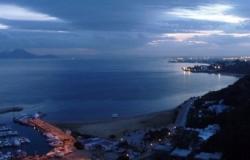Addressing Extremism: Lessons from Tunisia

In the wake of the recent attack in Tunis, Dr Rafik Abdessalem, Tunisia’s former Foreign Minister, outlines why social and economic inclusion may be the best strategy for governments looking to address violent extremism.
Many Middle Eastern and North African countries are waking up to the reality of growing violent extremism in their midst. Although Tunisia has been thrust into the limelight after the horrific attack in Tunis recently, the issue of fighters returning from foreign conflicts has far reaching implications for all countries.
The UK’s Home Affairs Select Committee has just issued a new report setting out ways to stem radicalisation, prevent individuals from travelling abroad and address the challenge of returning foreign fighters. Ennahdha, Tunisia’s moderate democratic Islamic party, agrees with the Committee that a holistic approach grounded in educating those most at risk of radicalisation is central to combatting extremism. There is plenty to learn from Tunisia’s experience.
One of the interesting proposals from the report concerns developing stronger partnerships with mosques, an area in which Tunisia has experience. After the Tunisian revolution in 2011, extremists took advantage of the security vacuum to take over 20 percent of the country’s mosques. During Ennahdha’s time in government from 2012-2014, we worked tirelessly to improve the security of the country by tackling this issue. This included dismantling terrorist networks, proscribing terrorist organisations, improving regional and international coordination and bringing nearly 1,000 mosques back under the control of moderate clerics, in cooperation with local communities.
Given our proximity to Libya and Syria and the difficulty of protecting our expansive desert borders, the fight against violent extremism is a serious challenge. Indeed, the recent attack in Tunis was carried out by fighters returning from Libya. Tunisia finds itself in a changing region in which its fragile democratic transition has continued to stand firm in the face of regional instability thanks to the impressive efforts of its political leadership. Tunisians are united against those who seek to disrupt our democratic transition, because we firmly believe that while the road to freedom and democracy may be long, our country has all that it takes to succeed and prosper. These four years have proven that, whatever the crisis, Tunisians can unite and innovate new mechanisms to resolve their differences and overcome challenges.
In a time when democracy is witnessing setbacks in many regions around the world, it is even more important to support our region’s transition to democracy. Many commentators have called for the European Union to do more to support Tunisia's progress through trade, assistance and investment, and we are particularly pleased to count the UK as a close partner. Figures released recently also show that trade between Tunisia and Germany has increased by 700% in the last three years. Tunisia was also recently ranked 44th in the world in terms of venture capital availability, and during an Investment and Entrepreneurship Conference (IEC) hosted in Tunisia on March 5th, President Obama announced that the United States would invest more than one billion dollars in the next generation of entrepreneurs in Tunisia.
However, as the Foreign Affairs Select Committee has urged, more needs to be done to improve trade between Tunisia and the EU. Without a strong economy and increased investment, Tunisia will struggle to counter the twin threats of political fragility and national security. With greater economic opportunities for young people, we can show that democracy and a pluralistic society are far better alternatives to authoritarianism or extremism.
The fight against violent extremism requires not only law enforcement and more effective security measures, but measures to promote social and economic inclusion. Democracy and economic progress, hand in hand, provide a powerful antidote to the political, social economic grievances callously exploited by extremists, by safeguarding rights and freedoms and providing the conditions for a dignified life. Tackling religious extremism also requires education and public awareness campaigns to tackle extremist views and deny them the religious justification to which they lay claim. Moderate Islam provides a powerful defence against religious extremism, by stripping away the latter’s flimsy façade of theological justification and establishing clearly and firmly that such views have no grounding in religious values.
While the threat of ISIS will continue to dominate the news pages this year, the world must not miss another big story in the region – Tunisia’s democratic transformation. Its success despite all the odds shows its immense potential as a democratic beacon in the Arab region, and as a gateway between Europe, Africa and the Middle East. While it may be a tough time for democracy around the world, democracy continues to be built and successfully sustained in Tunisia day after day. The world must not miss the opportunity to support this sole success of the Arab Spring.
Dr. Rafik Abdessalem was Foreign Minister in the first democratically elected government in Tunisia's history. He holds a BA in Philosophy from Mohammed V University, Rabat, as well as a doctorate in Politics and International Relations from the University of Westminster. He worked as a researcher at the University of Westminster and a visiting scholar at the Oxford Centre for Islamic Studies. He has been prominent member of various scientific and research bodies such as; Tunisian Students General Union, Maghreb Centre for Research and Al Jazeera's Centre for Studies.


